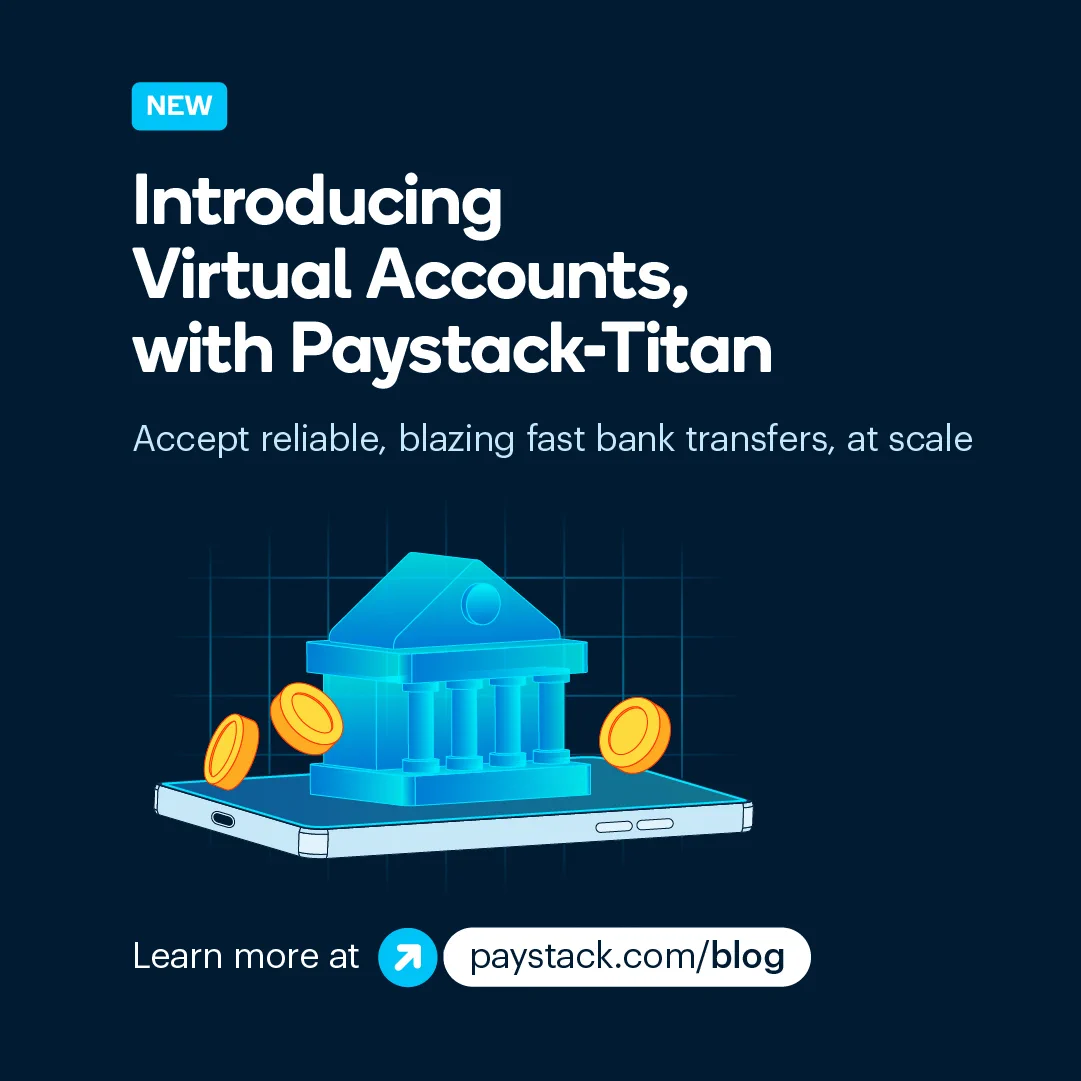| Introducing Paystack-Titan Virtual Accounts! | 
Three years ago, we introduced Paystack Virtual Accounts — auto-generated bank accounts that allow businesses in Nigeria to accept bank transfer payments from customers. Now, we’re excited to announce Paystack-Titan, a blazing-fast improvement to Virtual Accounts, that allows businesses to accept bank transfers instantly, reliably, and at scale. Learn more on the Paystack blog ✨ |
|
|
|
| Nigeria | Interswitch partners with Google Pay for merchant payments. Interswitch, a Nigerian payments company, has announced support for Google Pay payments. With this integration, merchants using Interswitch’s payment gateway can accept payments from Google Pay customers across the world. Interswitch |
| | EDITOR'S NOTE | Payment processors in Nigeria have made some effort to enable global wallets payments from customers. In 2021, Paystack became the first payment gateway to offer Apple Pay as a checkout option in Nigeria and Ghana.
These wallets open Nigerian merchants to international payments from millions of users but are still largely inaccessible to Nigerian consumers with local payment instruments. The next step for these wallets is working with local banks to allow Nigerian customers to add their cards and bank accounts to these wallets without any hassle.
As we pointed out last week, payments in Nigeria are becoming very mobile, and Google’s Android OS retains a lion's share of the mobile phone market in Nigeria. This presents an opportunity for Google Pay to properly onboard local users and offer them better payment experiences at scale. |
|
|
| Nigeria | Flutterwave launches Swap in Nigeria. Nigerian fintech Flutterwave has partnered with Wema Bank and Kadavra, a Bureau De Change (BDC) operator, to launch Swap, a platform for exchanging local and international currencies. This follows efforts by the Central Bank of Nigeria (CBN) to ease challenges with getting foreign currencies (FX) in Nigeria. Techpoint |
| | EDITOR'S NOTE | Nigeria’s apex financial regulator has engaged in sweeping FX reforms in the last few months. This includes attempts to unify the different exchange rates, allow Naira payouts for inbound remittances, set new guidelines for Bureau De Change Operations, and now ease restrictions on outbound remittances.
These efforts are all geared at reducing the strain of unmet FX demand on the CBN, which is estimated to be around $10 billion. Foreign Airlines operating in Nigeria had about $783 million in trapped funds as of August 2023.
These new initiatives are also supposed to make FX operations easier and more accessible to consumers and businesses. This ease of use should also, in theory, discourage unregulated parallel market activity where exchange rates are currently up to 25% more than official rates.
For Flutterwave (and their partners), Swap offers the opportunity to build a cheaper, faster, and more accessible customer experience for FX operations in Nigeria. The backing and involvement of the CBN should also drive more trading activity from consumers, businesses, and other financial institutions to the platform.
To achieve this though, Flutterwave and their partners might have to be content with high transactional volume but at much lower margins. At the time of launch, exchange rates on Swap were much closer to parallel market rates. But as of today, exchange rates on Swap now trade at just 2% above the official market rates. There is a 1% transaction fee but at even 3%, overall margins pale in comparison to the 25% spread obtainable in the parallel markets.
This normalization of rates is not surprising. Flutterwave and its partners are licensed financial institutions and are required by the CBN to maintain FX spreads within a certain limit.
That said, 3% gross margins are still higher than the 1.4% sticker pricing for Flutterwave’s core merchant payments business in Nigeria. There are big questions around sustained FX supply in Nigeria as foreign investments and crude oil sales remain muted. But as long as Flutterwave and their partners can sustainably source their FX—either from the CBN directly or USD receipts from inbound remittances and other USD-earning business lines—and trade without losses, then they should be fine. |
|
|
|
| Tanzania | Tembo obtains payments license from Central Bank of Tanzania (CBT). Tanzania’s Tembo, a payments fintech that offers payments solutions to businesses, has obtained a Payment Service Provider (PSP) license from the CBT. The new license will enable Tembo to compliantly process payments for their customers. WeeTracker |
|
|
|
| Nigeria | Emata raises $2.4 million in seed funding Emata, a Ugandan startup which offers loans to farmers, has completed a $2.4 million seed round. The funding was a mix of $1.6 million in debt and $800,000 in equity funding and will be used to deepen their presence in Uganda and expand into Tanzania. TechCabal |
|
|
| Kenya | Lipa Later secures new debt funding. Lipa Later, a Kenyan fintech offering credit, Buy-Now-Pay-Later (BNPL), and commerce solutions to consumers and merchants, has raised KES 500 million (~$3.3 million) in debt through a private issuance. The fintech also disclosed plans to raise up to KES 2 billion in both equity and debt. Lipa Later |
|
|
|
Share a tip | Do you have an announcement, event, or job posting you'd like to share, or have you come across an interesting bit of African fintech news recently? Hit reply and let me know! I might be able to include it in next week's newsletter. |
|
Know someone who'd enjoy Decode Fintech? |
|
|
|
|